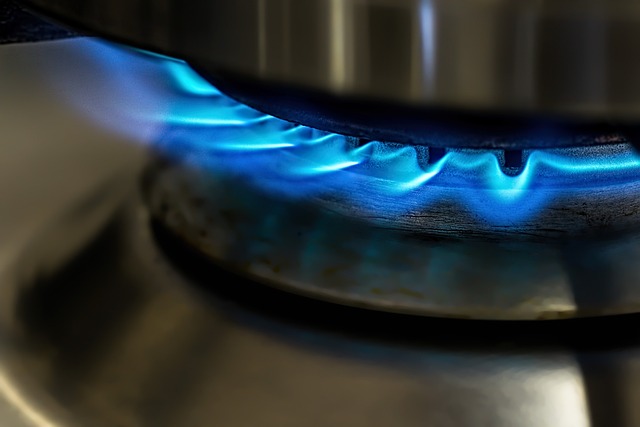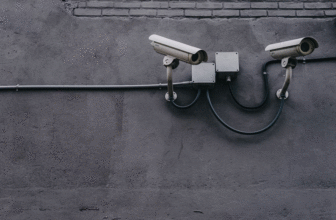
Gas safety is of utmost importance in any commercial setting, including businesses that work with Utility Bidder in the United Kingdom. The well-being and protection of employees, customers, and the public rely on adhering to strict regulations set by the government. Gas safety certificates play a vital role in ensuring the compliance and safety of gas appliances and installations within the UK commercial sector. In this article, we will explore the significance of gas safety certificates, their role in Utility Bidder businesses, and the compliance requirements that companies must meet to ensure a safe working environment.
What are Gas Safety Certificates?
Gas safety certificates, also known as CP12 certificates, are documents that confirm the safety of gas appliances and installations in commercial premises. These certificates are issued by qualified and registered Gas Safe engineers who have conducted thorough inspections and checks. The certificates provide evidence that the gas appliances, pipes, and flues are safe to use and meet the necessary standards and regulations.
The Importance of Gas Safety Certificates
Gas safety certificates play a crucial role in ensuring the well-being of everyone within a commercial setting. Here are some key reasons why these certificates are essential:
- Legal Compliance: In the UK, it is a legal requirement for commercial premises to obtain gas safety certificates. Failure to comply with these regulations can result in hefty fines, penalties, or even criminal charges. By obtaining the necessary certificates, businesses demonstrate their commitment to adhering to safety standards and regulations.
- Employee and Public Safety: Gas appliances that are not properly maintained or serviced can pose significant risks, such as gas leaks, carbon monoxide poisoning, or even explosions. Gas safety certificates provide assurance that these appliances have been inspected, serviced, and deemed safe to use. This helps protect employees, customers, and the general public from potential harm.
- Insurance Purposes: Many insurance providers require businesses to provide valid gas safety certificates as part of their policy agreements. Without these certificates, businesses may find themselves at risk of voiding their insurance coverage, leaving them financially vulnerable in case of accidents or incidents related to gas appliances.
Gas Safety Certificate Requirements
To obtain a gas safety certificate in the UK, businesses must fulfill certain requirements. Here’s an overview of the key steps involved:
- Registered Gas Safe Engineer: Gas safety inspections and checks can only be carried out by registered Gas Safe engineers. It is crucial to hire a qualified professional with the necessary expertise and certifications to conduct the inspection.
- Inspection Process: During the inspection, the Gas Safe engineer will examine all gas appliances, pipes, and flues within the commercial premises. They will check for any signs of damage, leaks, or potential hazards. In addition, they will ensure that the appliances are functioning properly and in accordance with the manufacturer’s guidelines.
- Maintenance and Servicing: If any issues are identified during the inspection, the Gas Safe engineer will provide recommendations for repairs or servicing. It is essential to address these issues promptly to maintain compliance and ensure the safety of the premises.
- Issuing the Gas Safety Certificate: Once the inspection is complete, and the gas appliances and installations are deemed safe, the Gas Safe engineer will issue a gas safety certificate. This certificate will include details such as the engineer’s name, registration number, inspection date, and any observations or recommendations made during the inspection.
Compliance and Renewal
To maintain compliance with gas safety regulations in the UK commercial sector, businesses must consider the following:
- Annual Inspections: Gas safety certificates are typically valid for one year. Therefore, businesses must arrange for annual inspections to ensure that their gas appliances and installations remain safe and compliant. Regular inspections help identify any potential issues and address them promptly.
- Document Retention: It is essential to keep a record of all gas safety certificates and related documents for at least two years. This documentation demonstrates compliance and provides evidence of regular inspections and maintenance.
- Reminder Systems: To avoid missing inspection and renewal deadlines, businesses can implement reminder systems or use the services of registered Gas Safe engineers who provide notification when the next inspection is due. This helps maintain a proactive approach to gas safety.
Gas Safety Responsibilities for Businesses
Businesses in the UK commercial sector have specific responsibilities when it comes to gas safety. Here are three key areas where businesses should focus their attention:
- Maintenance and Servicing: Businesses must ensure that all gas appliances and installations are properly maintained and serviced by qualified professionals. Regular servicing helps identify any potential issues early on and allows for prompt repairs or replacements. It is important to keep a record of all maintenance and servicing activities.
- Staff Training and Awareness: It is crucial for businesses to provide adequate training and awareness programs for their staff regarding gas safety. Employees should be educated on how to identify potential gas-related hazards, what to do in case of a gas leak or emergency, and how to report any concerns. By fostering a culture of safety and providing the necessary knowledge, businesses can mitigate risks and promote a safe working environment.
- Emergency Response Plan: Businesses should have a well-defined emergency response plan in place in case of a gas-related incident. This plan should include clear instructions on evacuation procedures, emergency contacts, and steps to be taken to minimize risks and ensure the safety of everyone in the premises. Regular drills and training exercises can help familiarize employees with the emergency response plan.
Common Gas Safety Hazards
While gas safety certificates and compliance are crucial, it is important to be aware of common gas safety hazards that businesses may encounter. By understanding these hazards, businesses can take proactive measures to prevent accidents and maintain a safe environment. Here are some common gas safety hazards to watch out for:
- Gas Leaks: Gas leaks can occur due to damaged or poorly maintained gas appliances, pipes, or fittings. Leaking gas can be highly flammable and pose a significant risk of fire or explosions. It is essential to regularly inspect and maintain gas installations to identify and address any leaks promptly.
- Carbon Monoxide Poisoning: Carbon monoxide (CO) is a colorless, odorless gas that can be produced by faulty gas appliances. Breathing in high levels of carbon monoxide can be fatal. It is important to ensure that gas appliances are properly ventilated, and carbon monoxide detectors are installed to detect any leaks.
- Inadequate Ventilation: Poorly ventilated areas can lead to a buildup of gas, particularly carbon monoxide. Insufficient ventilation can be caused by blocked flues, vents, or inadequate airflow in enclosed spaces. Regular inspection and maintenance of ventilation systems are necessary to prevent gas buildup and ensure proper airflow.
Choosing a Reliable Gas Safe Engineer
When it comes to gas safety inspections and obtaining gas safety certificates, choosing a reliable Gas Safe engineer is crucial. Here are some factors to consider when selecting a professional:
- Registration: Ensure that the Gas Safe engineer is registered and holds valid certifications. The Gas Safe Register is an official list of qualified engineers authorized to work safely with gas appliances and installations.
- Experience and Expertise: Look for an engineer with a good track record and relevant experience in conducting gas safety inspections for commercial premises. They should have a thorough understanding of the specific requirements and regulations applicable to businesses in the UK commercial sector.
- Recommendations and Reviews: Seek recommendations from trusted sources, such as other businesses or industry associations. Additionally, check online reviews and testimonials to gain insights into the engineer’s reputation and the quality of their services.
- Professionalism and Communication: Choose an engineer who demonstrates professionalism, communicates clearly, and provides comprehensive reports and explanations during the inspection process. It is important to have clear and transparent communication throughout the gas safety certification process.
Prioritize Gas Safety
Gas safety certificates and compliance are essential for businesses in the UK commercial sector to ensure the safety of their premises, employees, and customers. By understanding their responsibilities, being aware of common gas safety hazards, and selecting a reliable Gas Safe engineer, businesses can effectively meet the necessary requirements and maintain a safe working environment. Prioritizing gas safety not only protects lives but also helps build trust and reputation within the industry.




